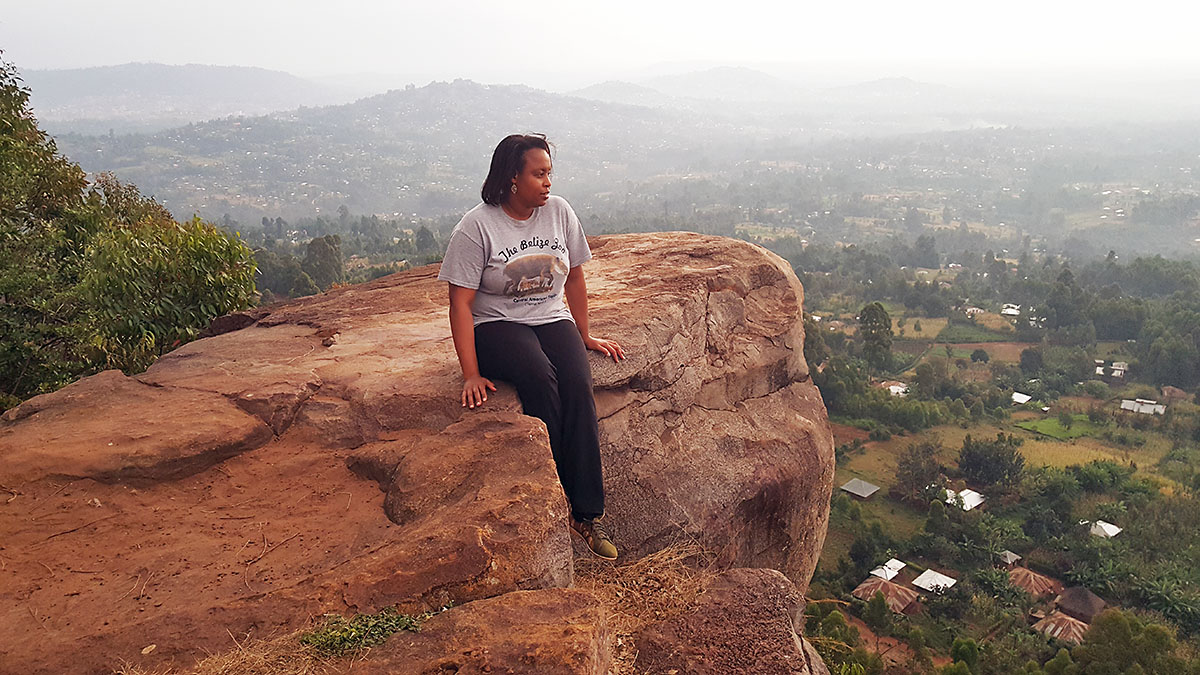 Clarksville, TN – Austin Peay State University associate professor of geography Dr. Christine Mathenge last summer sat on a rocky cliff at an ancient religious site in Kisii, Kenya, and stared at the meager, metal roof homes that glimmered in the valley below.
Clarksville, TN – Austin Peay State University associate professor of geography Dr. Christine Mathenge last summer sat on a rocky cliff at an ancient religious site in Kisii, Kenya, and stared at the meager, metal roof homes that glimmered in the valley below.
In addition to those homes, she saw several large boulders that could be used to create an elaborate economy of expensive flooring tiles, ornate sinks and carvings and sculptures, but the area’s landowners have yet to tap the value of the rocks dotting their landscape.

“They sell large chunks of rock cheaply, yet it could really be a larger part of their economy,” Mathenge said. “I’m interested in land ownership and land laws in Kenya and East Africa in general. I’m interested in giving landowners more control.”
Last summer, Mathenge began a collaborative research project that could lead to the development of a ceramic tile lab at a nearby university, thereby increasing the value of the rocks (soap stone) that dominate the area. Her work could ultimately transform the lives of thousands of people living in Kisii, but it also forms the basis of a unique degree program she oversees within Austin Peay’s Department of Geosciences.
For the last few years, Mathenge has served as the lead faculty member for the department’s Global Environment and Development concentration. The program’s curriculum provides students with an understanding of the geographic, economic, historical, political and philosophical issues surrounding human society’s interactions with the natural environment.
“The concentration’s cluster of classes are designed to give the students exposure to the global environment,” Mathenge said. “By the time students graduate, they’re graduating into a global job market, and they need to be prepared, regardless of what their individual interests are. They have to understand how the global economy works and how other cultures interact with and preserve nature.”
Studying abroad is a key component of this concentration because Mathenge believes students need to witness the environments and cultures first-hand. In the summer, she takes a group of students to the Central American country of Belize, where they develop research projects based on their encounters.
“We want to get students connected to the world outside of Clarksville,” she said.
Mathenge went outside of Clarksville, herself, when she traveled to Kenya. Last year, she was one of the few U.S. scholars to be awarded a prestigious Carnegie Fellowship, which sent her to Kisii to help develop a geography program for a small, three-year-old university.
“I helped to co-develop it from scratch,” she said. “I helped design a curriculum for undergraduate, masters and Ph.D. levels. I ended up advising all 33 graduate students.”
When she wasn’t at the university, she was visiting rock quarries with another U.S. geographer, trying to figure out how to give landowners more power and how to boost the local economy.
“The plan is to return to Kenya and keep working on different parts of this project,” she said.
For more information on the APSU Department of Geosciences’ Global Environment and Development concentration, visit www.apsu.edu/geosciences/geography/global-environment-development



